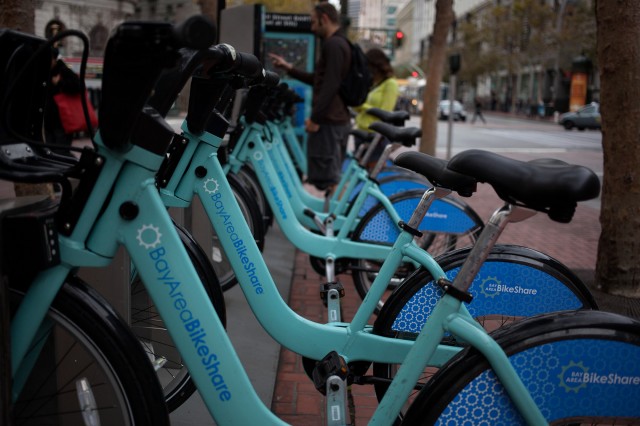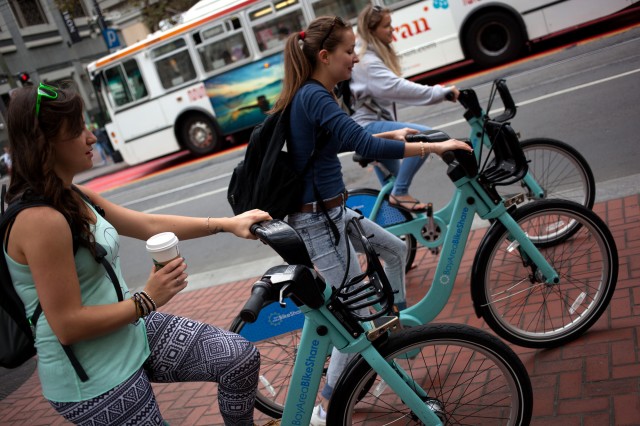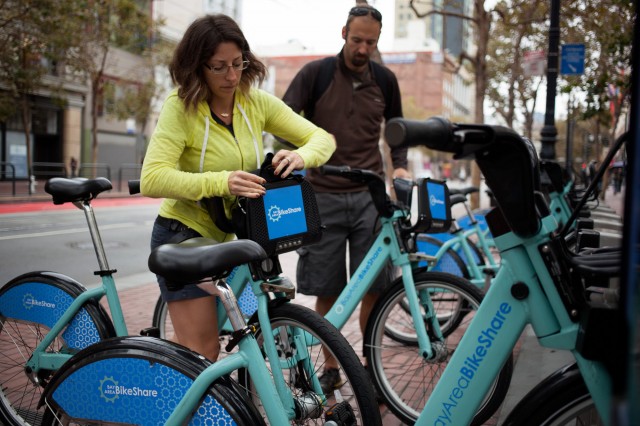
One year after the sturdy, light-blue bikes first hit the streets, Bay Area Bike Share is being deemed a success. But the system's long-anticipated expansion remains stalled because the supplier filed for bankruptcy and the company that operates it is restructuring.
Since the system launched on Aug. 29, 2013, with 700 bikes at 70 stations in San Francisco, Redwood City, Palo Alto, Mountain View and San Jose, more than 32,000 people have taken 300,000 trips, traveling a total of 630,000 miles, according to the Bay Area Air Quality Management District.
“I think it’s gone really well,” said Heath Maddox, a bike-share planner at the San Francisco Municipal Transportation Agency. “We would like it to be bigger, and so would everybody. But if that’s the chief complaint, I’m satisfied at this point.”
The benefit of starting smaller and later than anticipated was that software bugs, which plagued bike-share systems in New York and Chicago, could be worked out, said Maddox. Air district officials say the system now has 5,000 annual members and 28,000 "casual" members.
A data challenge that drew 35 entries offers some creative visualizations of trip patterns. The bulk of trips have taken place in San Francisco, with its 35 stations. Daily ridership broke a record Monday, topping more than 1,200 trips, said Maddox.

Andrew Stitt of Alameda was spotted docking a bike at the Civic Center station Tuesday. He said he uses Bay Area Bike Share to complete the last leg of his commute from BART to his job as a software engineer in SoMa.
